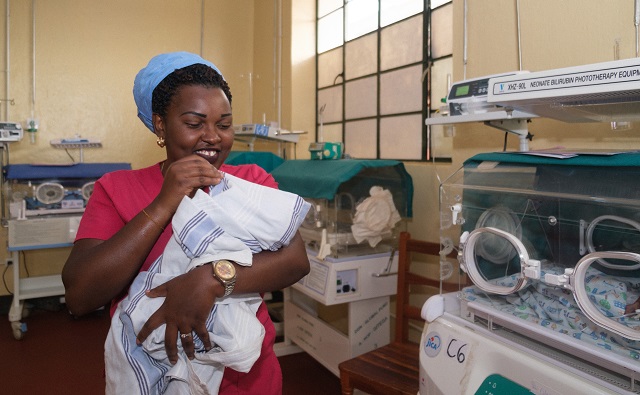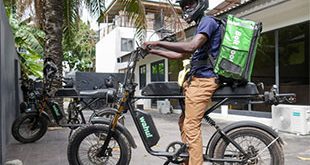
Project is located at the common border of Rwanda and Tanzania on River Kagera
ANALYSIS | RONALD MUSOKE | For any surgeon, one of the worst moments in the operating room is the sudden, gut-wrenching silence that comes with a power outage in the middle of a medical operation.
Dr. Franck Arnaud Ndorukwigira, the Deputy Director of Gitega Regional Hospital—the largest health facility in Burundi’s political capital, Gitega—knows this all too well.
“One day, during a laparotomy for pelvic peritonitis, there was a power cut,” he recalled. “We had to finish the operation using a torch. It was incredibly difficult.”
The hospital, like many others in Burundi, struggled with unreliable electricity. To cope, management purchased a diesel generator to supplement the country’s erratic power supply. However, running it around the clock proved unsustainable due to limited hospital funds, forcing difficult decisions about its use. Staff like Dr. Ndorukwigira often faced frustrating, even perilous, working conditions.
Rusumo hydropower to the rescue
Today, the seemingly insurmountable challenge has been overcome, thanks to stable and regular supply of electricity from the brand new 80-megawatt Rusumo hydroelectric power station.
The Regional Rusumo Falls Hydroelectric Project was developed by the governments of Burundi, Rwanda and Tanzania through a commonly owned Rusumo power company. The joint development was entered through a tripartite agreement signed in 2012.
The project is located at Rusumo Falls at the common border of Rwanda and Tanzania on River Kagera while the power production facilities are located entirely on the southside of the bank of the Kagera River in Rwanda.
Built at a cost of US $340 million, with the African Development Bank Group (AfDB Group) providing US$ 107.11 million, including US$ 97.31 million from the Bank Group’s concessional lending window, the African Development Fund, and US$ 9.8 million from another AfDB lending vehicle, the Nigeria Trust Fund, as well as the World Bank and the European Union, the power station now supplies Burundi with about 27 megawatts of electricity. A similar share of electricity goes to the national grids of Rwanda and Tanzania.
The regional electricity sharing initiative was spearheaded by the Nile Equatorial Lakes Subsidiary Action Programme (NELSAP), one of two investment arms of the Nile Basin Initiative (NBI), a regional body that brings together countries within the Nile River Basin.
These include; Burundi, DR Congo, Egypt, Ethiopia, Kenya, Rwanda, South Sudan, Sudan, Tanzania and Uganda. Eritrea participates in NBI activities under “observer” status. NELSAP’s project targets improving access to electricity in the upper Nile Basin countries of Burundi, DR Congo, Kenya, Rwanda, Tanzania and Uganda through increased cross-border sharing of electricity.
Besides the construction of the power station itself, the project also included the installation of transmission lines, including a 161‑kilometre cable to deliver the 27 megawatts of electricity to Burundi.
Rusumo Dam saves lives
The steady electricity supply from the Rusumo Dam means that Gitega Hospital can now devote more resources to upgrading equipment and medical teams can focus on their primary mission of saving lives.
The hospital has installed an oxygen production unit that meets its own needs and supplies gas to other regional medical centres. New incubators in the hospital’s neonatal department are permanently connected to the oxygen generator, saving the lives of premature babies.
“It has made a huge difference,” Dr Ndorukwigira says. “We took in a mother who gave birth to premature triplets at six months. If these new incubators were not connected to electricity 24 hours a day, we couldn’t have cared for these babies properly and they would probably have died. Now the babies are gradually gaining weight and their mother is very happy.”
The upgrading of electricity infrastructure associated with the Rusumo project is also helping local businesses and households as well, boosting the regional economy.
Additional work is now underway to extend medium-voltage power lines to more rural communities, promoting inclusive economic growth. Ezéchiel Bagayuwitunze, who coordinates Burundi’s share of electricity from the Rusumo project, described the overall impact the project is having on Burundi:
“Previously, the town of Gitega and the surrounding districts suffered frequent and long power cuts and major drops in voltage, due to electricity shortages and low capacity of the existing transmission cables. The installation of better cables and hydroelectric power from Rusumo Falls means that we can provide a better service to people in Gitega region and the country as a whole.”
Jean Barakamfitiye, the engineer in charge of the Gitega and Muyinga substations notes that by focusing its power supply strategy on hydroelectricity, Burundi is building a greener, more sustainable future, supporting low-carbon economic and social development.
“We have a vision of a developed country in 2040 and a rich country in 2060… The Rusumo project makes a major contribution to achieving that goal,” said Barakamfitiye.
The stable supply of electricity from Rusumo has also made it possible to shut down a 30-megawatt oil-fired power station, reducing dependence on fossil fuels and emissions of greenhouse gas. The closure of the thermal power station helps save USD 2 million per month, the cost of buying fuel and lubricants.
 The Independent Uganda: You get the Truth we Pay the Price
The Independent Uganda: You get the Truth we Pay the Price



